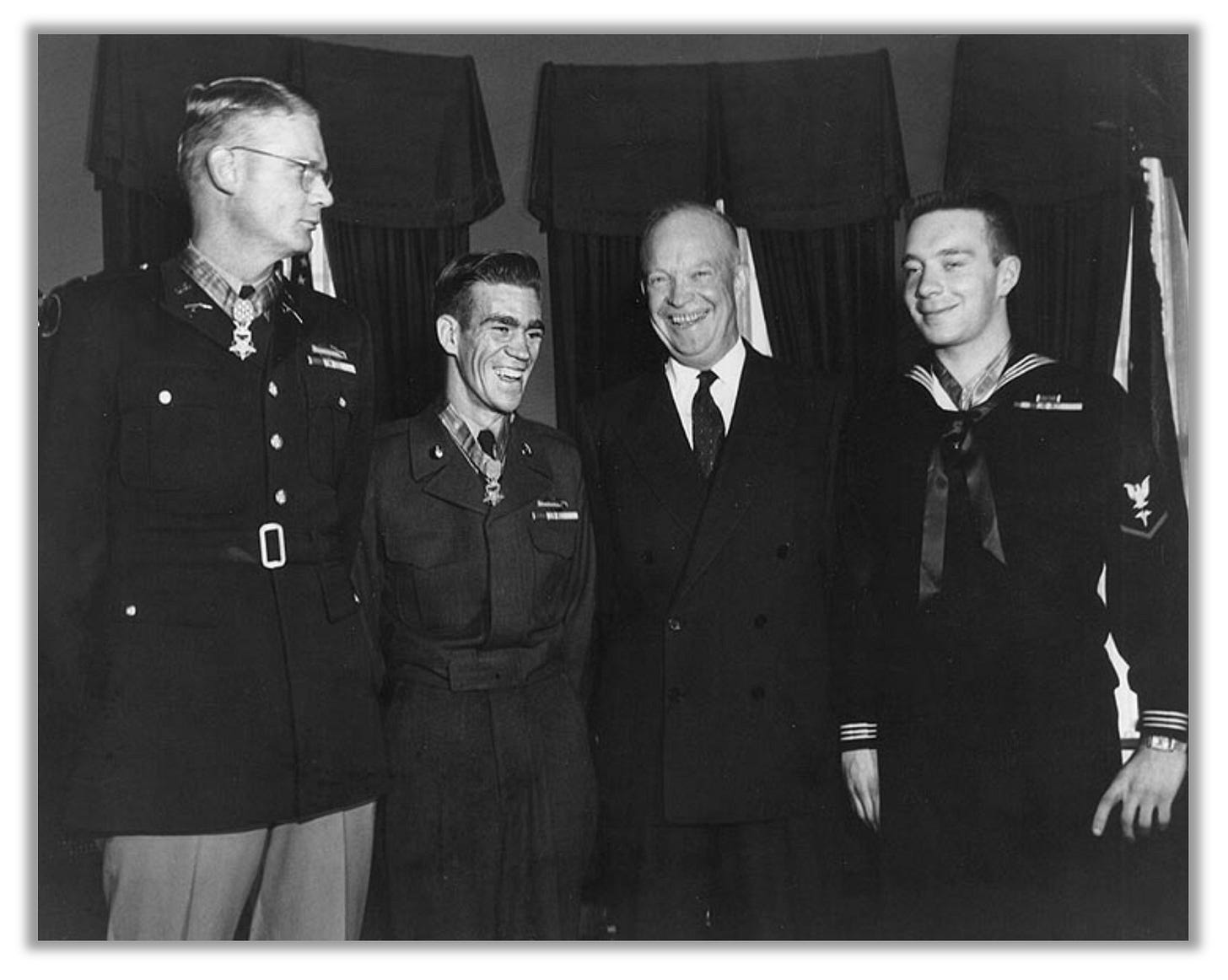Medal of Honor Monday: Ernie West
“Brotherhood” demanded that West go back and help. He’d learned this growing up in an orphanage in Kentucky, where he felt that he had 125 brothers. Those boys all had each other’s backs.
On this day in 2021, a hero passes away. Ernest “Ernie” West was known for his humility—and his patriotism. He was a “man who would talk more about his fishing adventures at Dale Hollow than recalling his heroic actions of the Korean war,” as one local said when he passed.
West had much to brag about, if he’d wanted to. As a young soldier, he’d risked his life to retrieve wounded men as they lay stranded amid enemy fire.
But West wouldn’t have it any other way: “Brotherhood” demanded that he go back and help. He’d learned this growing up in an orphanage in Kentucky, where he felt that he had 125 brothers. Those boys all had each other’s backs.
“We didn’t leave nobody,” he said simply. “I was raised that way.”
Pfc. West’s heroism came on October 12, 1952, near Sataeri, Korea. His squad was then on a volunteer mission to locate an enemy outpost.
Our men had just started up a hill when they were ambushed. The enemy fire was intense, and it seemed like “all hell broke loose,” West later remembered.
“They started rolling grenades down the hill between us,” he said, “and I was on the point and they was rolling right on through my legs. . . . And one exploded in front of me and knocked me down for a few minutes.”
He wasn’t down for long. Instead, he came to and jumped into action. “You just sit there and fire until you can’t shoot no more,” he shrugged. He soon noticed that several men were hurt, including his commanding officer. Assuming command, he ordered a retreat, but he had no intention of withdrawing himself. He was determined to retrieve the wounded first.
His Medal citation describes the “withering fire and bursting shells” that West braved in what followed. He finally reached the wounded commanding officer, George Gividen.
“I just picked him up and threw him over my shoulder and took off,” West recounted. “I got into a firefight with George on my shoulder. . . . they started firing at me, so I dropped George on the ground and laid on top of him, and then I got up and killed the guys that’s coming after us. And I picked George up and come on back out of there.”
By then, West had a shrapnel wound to his left eye. He’d eventually lose that eye, but he was so focused on what he was doing that he didn’t even realize he was injured. Instead, he went back to the battlefield, intent on retrieving two other wounded men. In the end, everyone would survive the ambush because of West’s bravery.
Roughly a year later, West was told that he would receive a Medal of Honor.
“I told them I didn’t want it,” West recounted. “I thought if one was going to get a medal, everybody ought to have one. We all went, we all served. If you give one, you ought to give one to everybody. That’s the way I feel about it, but they don’t.”
An uncle finally convinced him to go to Washington, D.C. to accept the Medal, which he received from Dwight Eisenhower. “In addition to this decoration, you have an old soldier’s admiration,” the President told him.
But West was still focused on brotherhood and supporting his fellow citizens.
“I think, today, in this day and time, if we would think of brothers and sisters, we’d have a better society to live in,” he concluded. “We need to be good to people. Treat people like you’d like to be treated. We’re all the same . . . We’re Americans.”
Good advice then, and good advice now. RIP, Sir.
Sources can always be found on my website, here.



This man had it right. You have got to treat everyone like you want to be treated, A lost concept.
Today's verse was Love your neighbor. He knew this in his heart. Awesome person to follow. RIP Sir!.